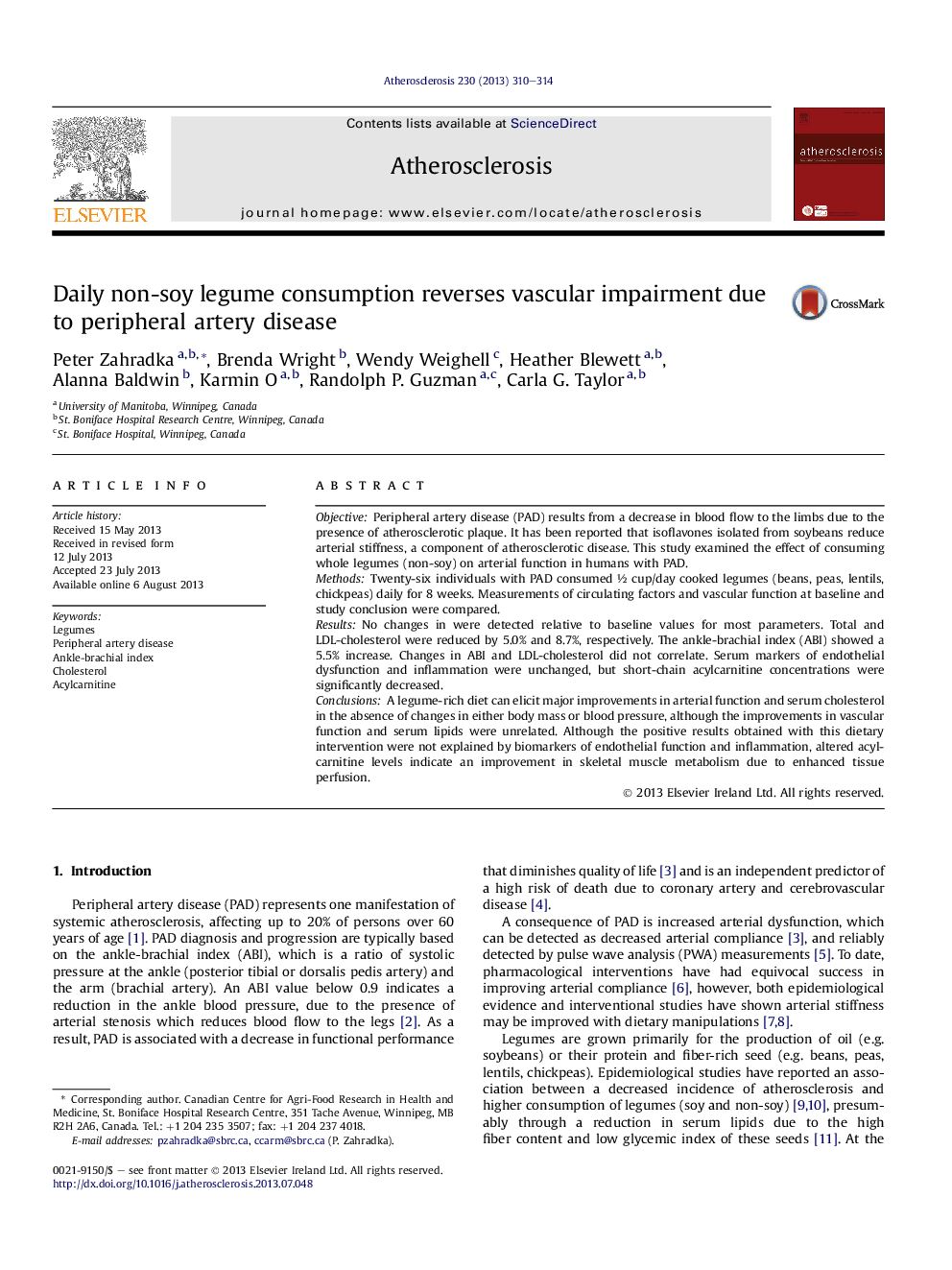| کد مقاله | کد نشریه | سال انتشار | مقاله انگلیسی | نسخه تمام متن |
|---|---|---|---|---|
| 5947092 | 1574723 | 2013 | 5 صفحه PDF | دانلود رایگان |
- Persons with peripheral artery disease consumed ½ cup non-soy legumes for 8 weeks.
- Ankle-brachial index and serum cholesterol levels were improved by the diet.
- Inflammation, metabolism and endothelial function markers were unchanged.
- Skeletal muscle metabolism was improved due to enhanced blood flow to the limbs.
ObjectivePeripheral artery disease (PAD) results from a decrease in blood flow to the limbs due to the presence of atherosclerotic plaque. It has been reported that isoflavones isolated from soybeans reduce arterial stiffness, a component of atherosclerotic disease. This study examined the effect of consuming whole legumes (non-soy) on arterial function in humans with PAD.MethodsTwenty-six individuals with PAD consumed ½ cup/day cooked legumes (beans, peas, lentils, chickpeas) daily for 8 weeks. Measurements of circulating factors and vascular function at baseline and study conclusion were compared.ResultsNo changes in were detected relative to baseline values for most parameters. Total and LDL-cholesterol were reduced by 5.0% and 8.7%, respectively. The ankle-brachial index (ABI) showed a 5.5% increase. Changes in ABI and LDL-cholesterol did not correlate. Serum markers of endothelial dysfunction and inflammation were unchanged, but short-chain acylcarnitine concentrations were significantly decreased.ConclusionsA legume-rich diet can elicit major improvements in arterial function and serum cholesterol in the absence of changes in either body mass or blood pressure, although the improvements in vascular function and serum lipids were unrelated. Although the positive results obtained with this dietary intervention were not explained by biomarkers of endothelial function and inflammation, altered acylcarnitine levels indicate an improvement in skeletal muscle metabolism due to enhanced tissue perfusion.
Journal: Atherosclerosis - Volume 230, Issue 2, October 2013, Pages 310-314
